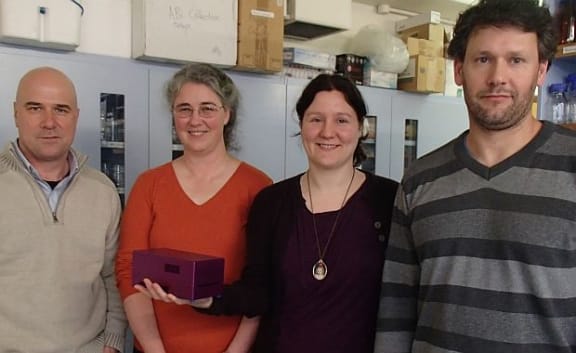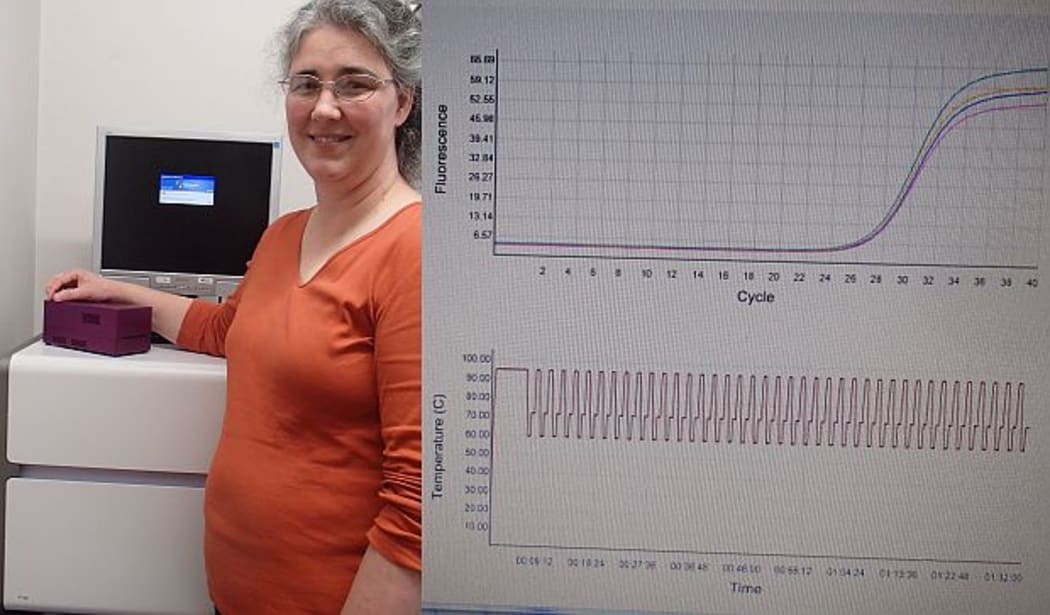By Alison Ballance
The Freedom4 is smaller than a loaf of bread and runs on batteries. Yet it’s capable of doing the same, accurate DNA analysis that much larger lab-based qPCR machines do, and its developers say it’s set to be a game-changer.
“It was an incredible challenge, to be able to take the device out of the laboratory to where it’s needed, to generate a result at the time, and to empower people to take action immediately,” says team leader Jo-Ann Stanton, from the University of Otago. “But we’ve not only got a nice miniature box that you can throw in your backpack and take on your next hike with you, but it’s going to give you the standard of result that you’d expect from a central laboratory machine”
qPCR, or quantitative polymerase chain reaction, is a technique for identifying bacteria and viruses, for example, using trace amounts of DNA found in the environment. Traditionally, testing for the presence of E. coli, for example, in a river, has involved collecting a water sample that gets sent to the lab for analysis, with results available a few days later.
The Freedom4 will revolutionise this: a researcher can carry the device to the riverbank in a backpack, connect the device to a laptop computer or smart phone, add the water sample and appropriate primers for the microbe being tested for, and 50-or so minutes later will have results saying whether the organism is present and in what quantities. This will allow Council staff, for example, to respond directly to the situation, perhaps tracking the E. coli back to its source before conditions change.
In a hospital situation, it could allow medical staff to confirm that patients have norovirus, and also identify and allow immediate cleaning of contaminated areas.

The team that have developed the Freedom4 mobile PCR device (from left): Chris Mason, Jo-Ann Stanton, Christy Rand (holding the device) and Chris Rawle. Photo: RNZ / Alison Ballance
Freedom4 has taken a multi-disciplinary team from the Department of Anatomy at the University of Otago more than six years to develop. It currently exists only as a prototype, but the team have been working with Otago Innovation Ltd and the company Ubiquitome, and are hoping to soon sign an agreement to commercialise the machine. The team included a physicist responsible for miniaturising the optics and ensuring that everything would perform during the high temperatures needed for PCR, a computer programmer who developed the firmware and software required, as well as a chemist and biologists.
Freedom4 was tested by the New Zealand Institute for Environmental and Scientific Research, and found to perform as accurately as larger lab-based systems.

Jo-Ann Stanton holds the Freedom4 mobile PCR device, which sits on top of a standard lab-based PCR machine (left), and a typical output showing the temperature cycles (bottom) and the fluoresence curve which relates to the amount of DNA in the sample. Photo: RNZ / Alison Ballance

